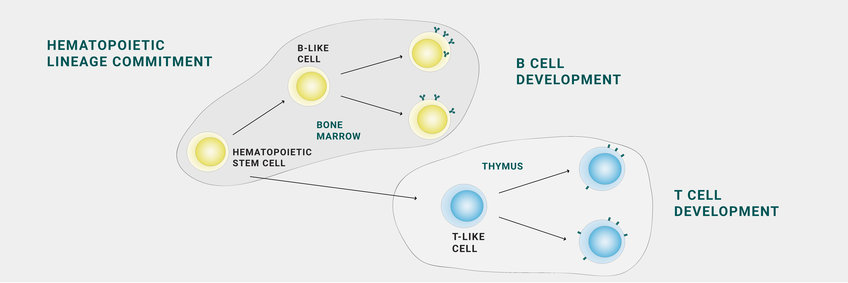
Focus Immunobiology
Immunobiology is concerned with the ways multicellular organisms defend themselves against the onslaught of pathogens. They have evolved a plethora of strategies to guard their bodily integrity, and to promote survival and reproduction.
Also for humans, a properly functioning immune system is of central importance. Indeed, of all branches of medicine, the translation of results from immunological research to medical treatments over the last two centuries has probably had the most significant impact on human life expectancy. Many devastating infectious diseases have lost their grip on humankind, thanks to preventive strategies such as vaccination and general hygiene. Furthermore, immunology provides us with critical information for the treatment of inflammatory diseases and cancer that can afflict many organ systems and are a substantial burden to patients and modern health care systems.
Our current research focuses on the molecular mechanisms underlying lymphocyte generation from haematopoietic stem cells. Of exceptional interest are factors within lymphocytes and those emanating from the microenvironment in lymphoid organs that foster the emergence of mature effector cells. Apart from sophisticated in vitro systems, we use a wide range of animal model systems to study various aspects of the immune system in a physiological context.
Additionally, immunobiology serves as a paradigmatic research field for key questions in modern biology, such as cellular identity, cell-cell interactions, the structure of protein complexes and signal transduction in cells.